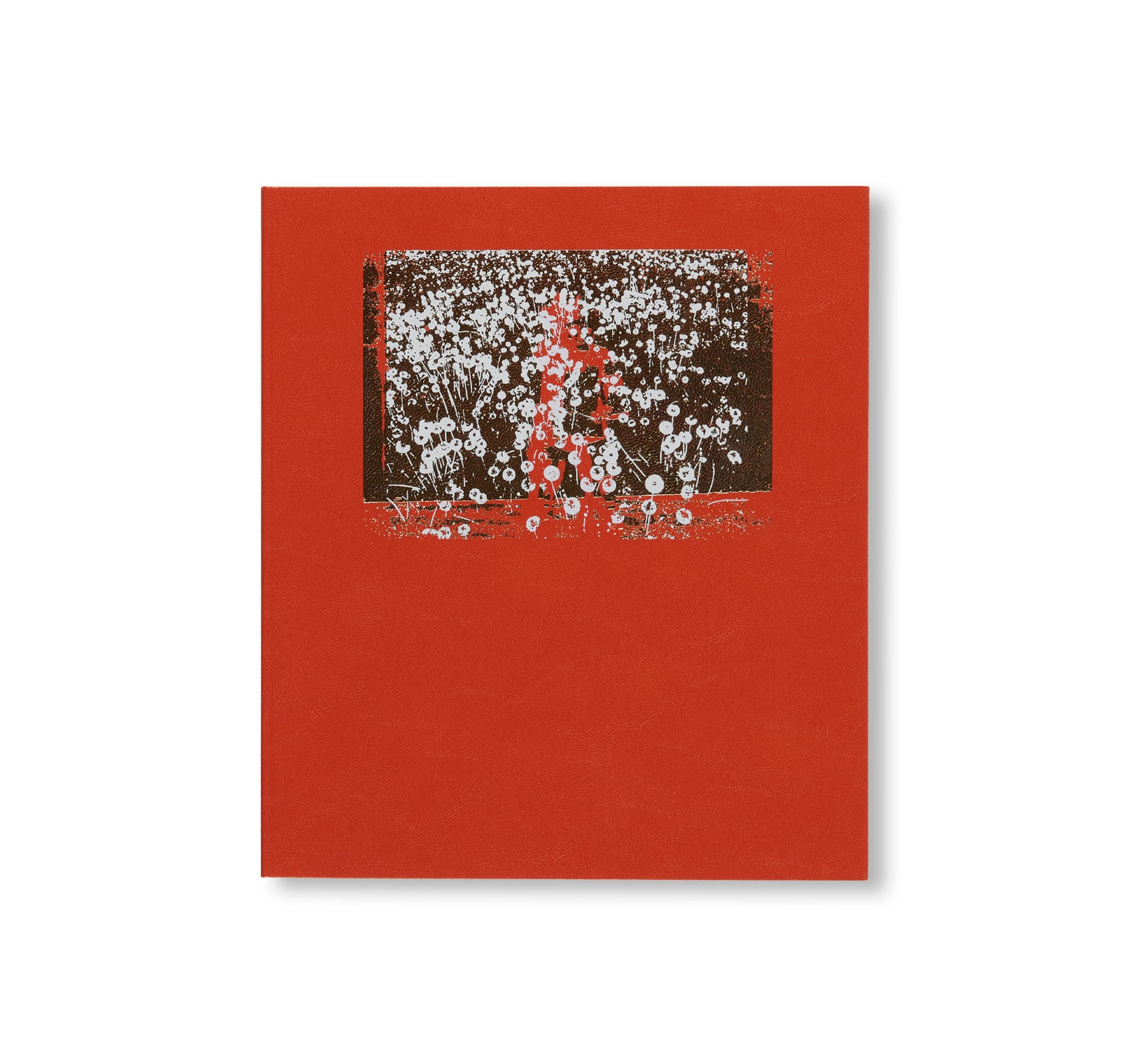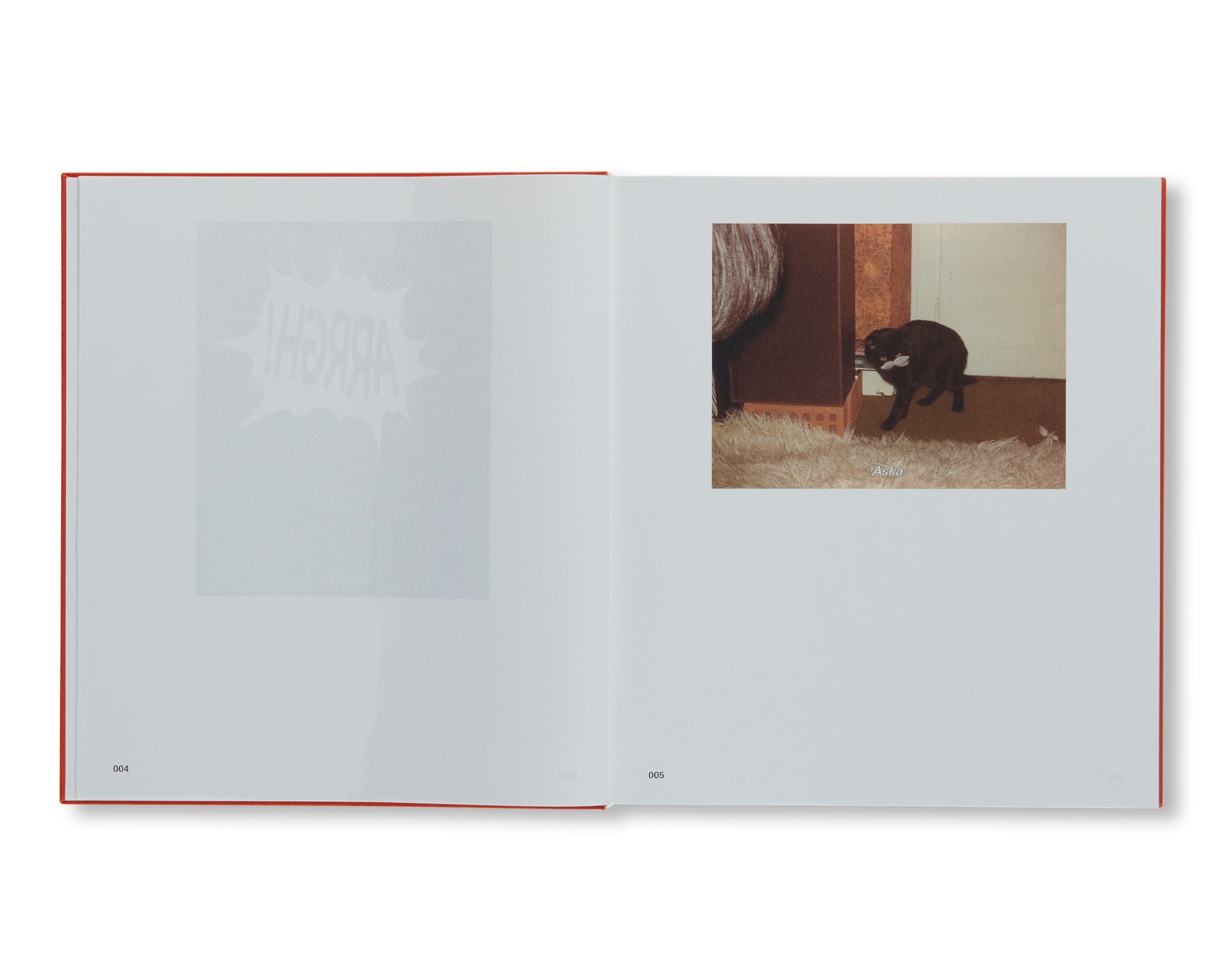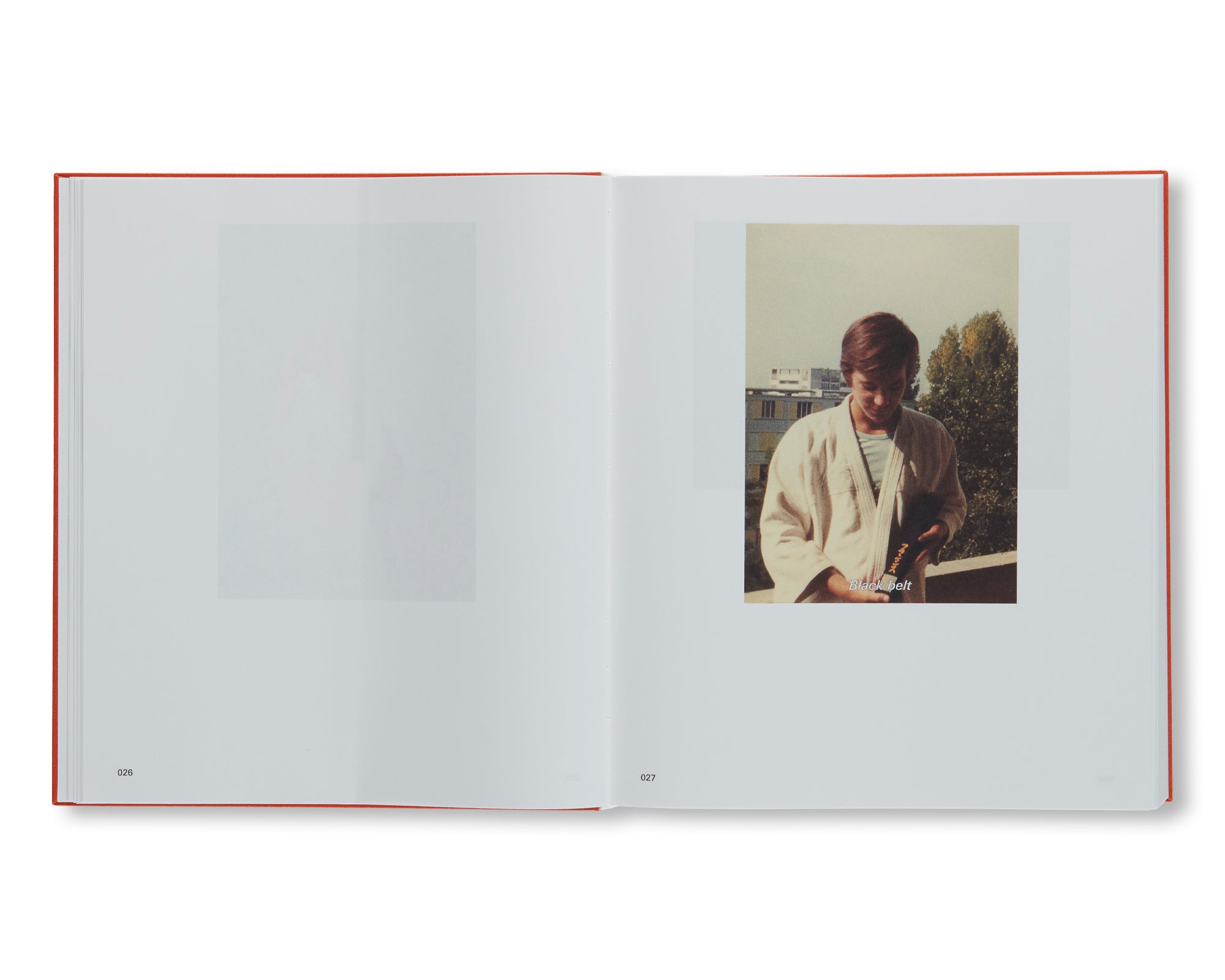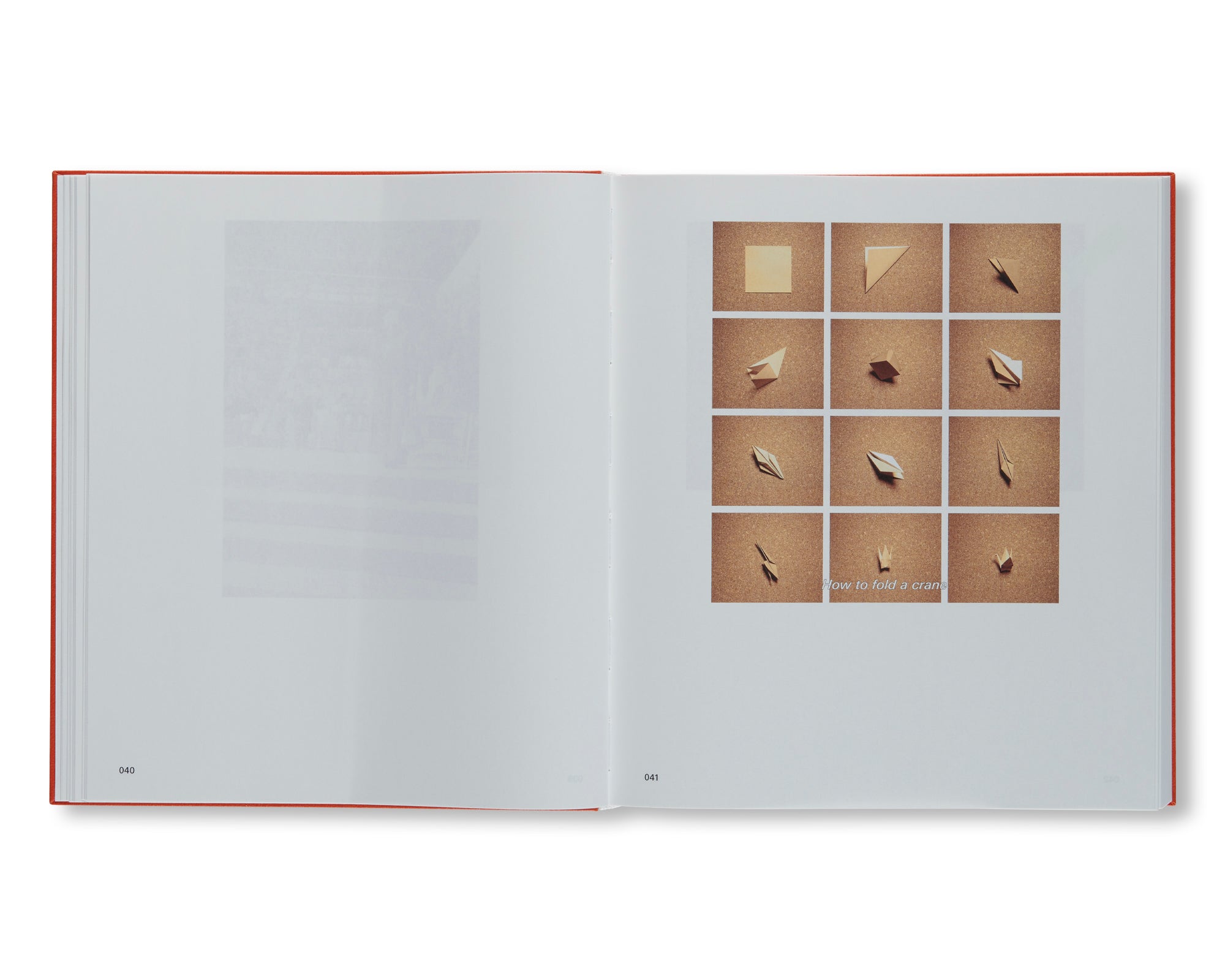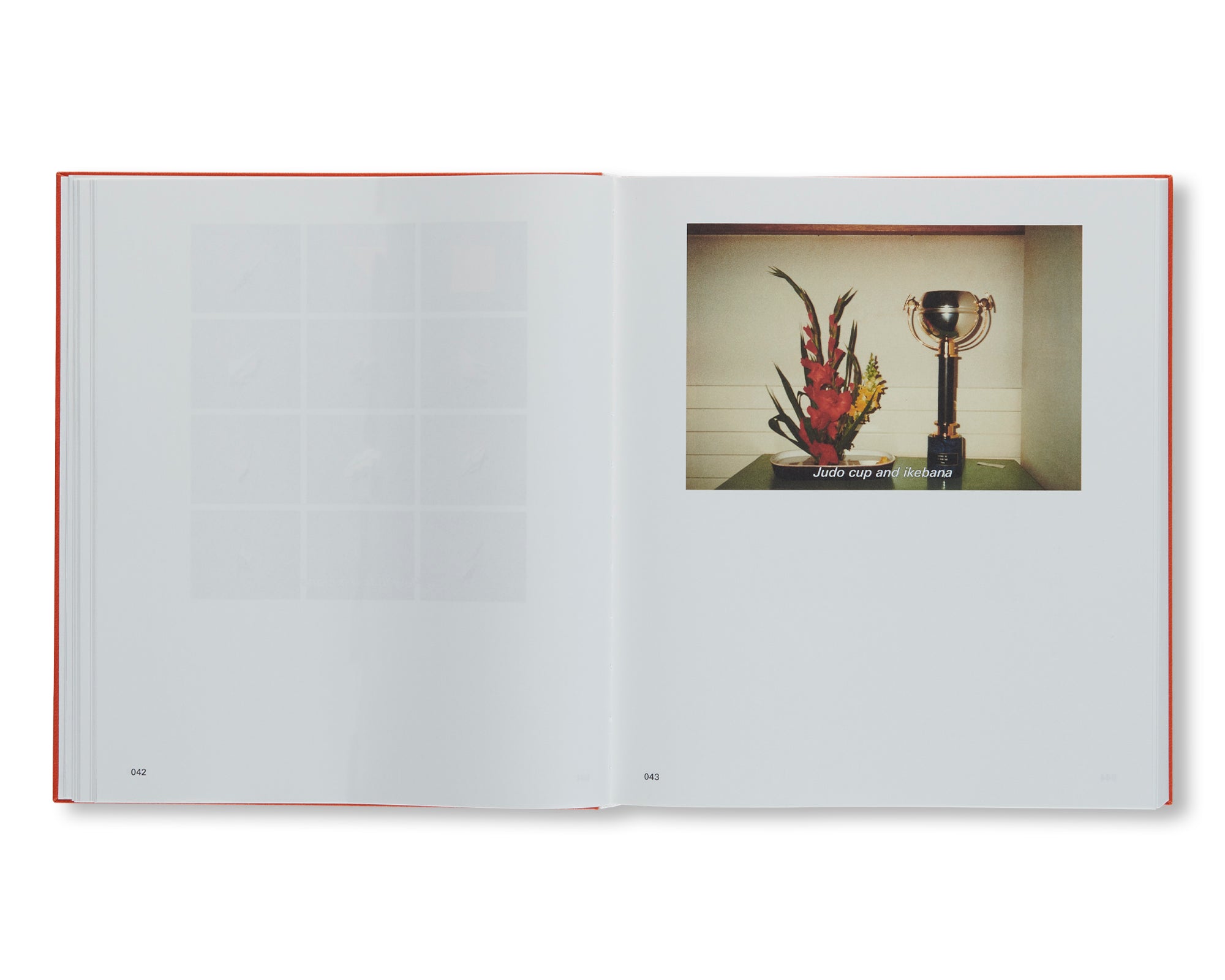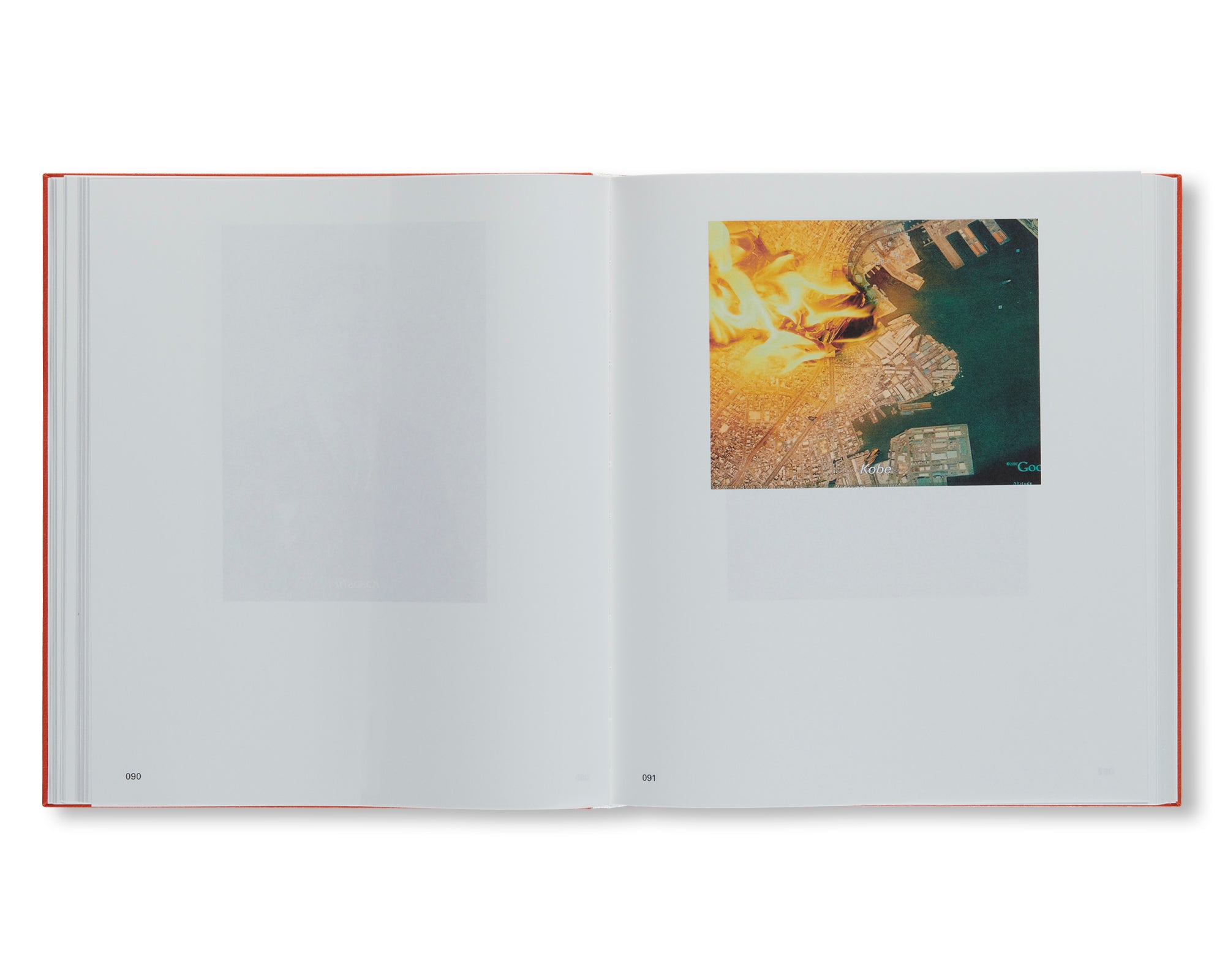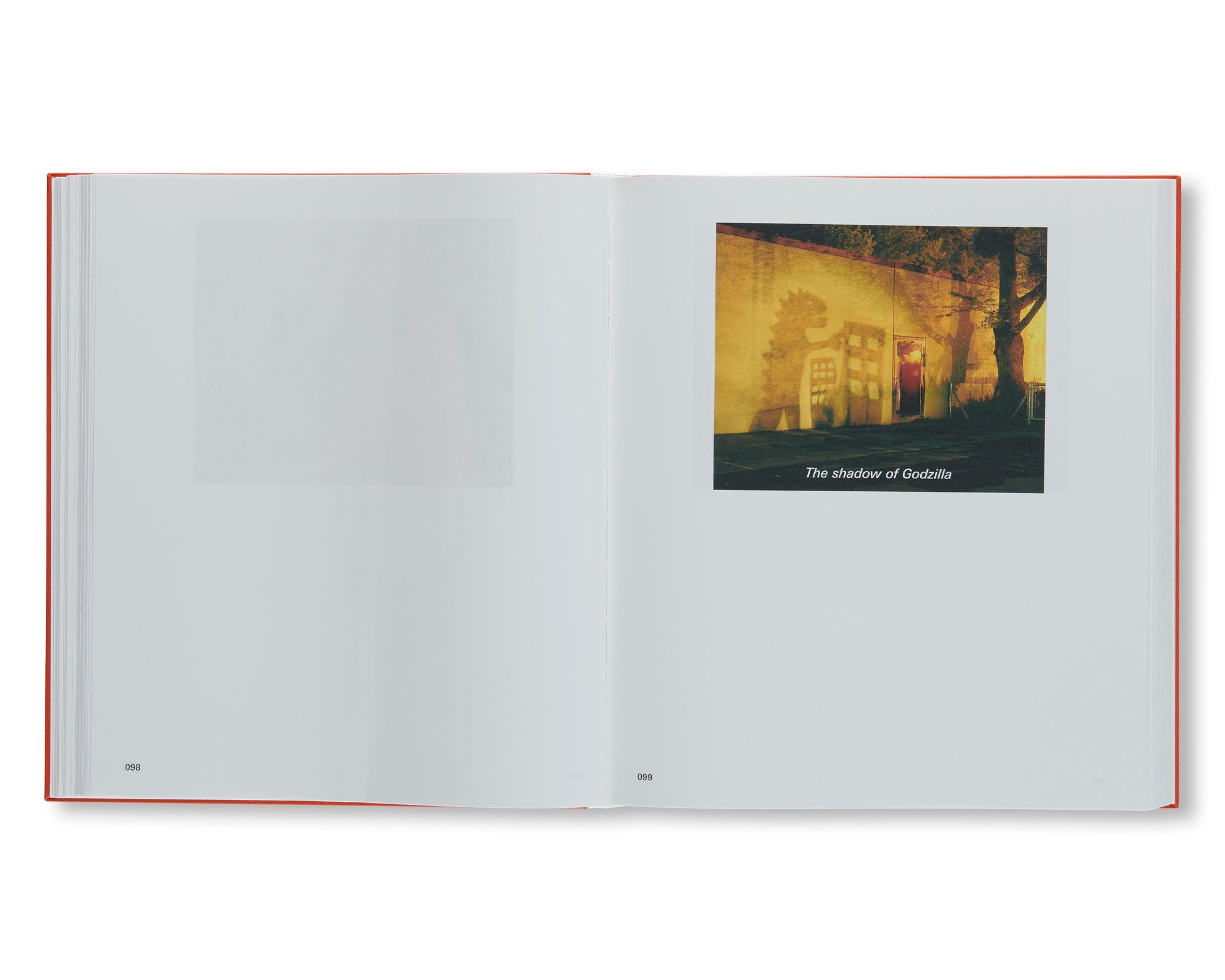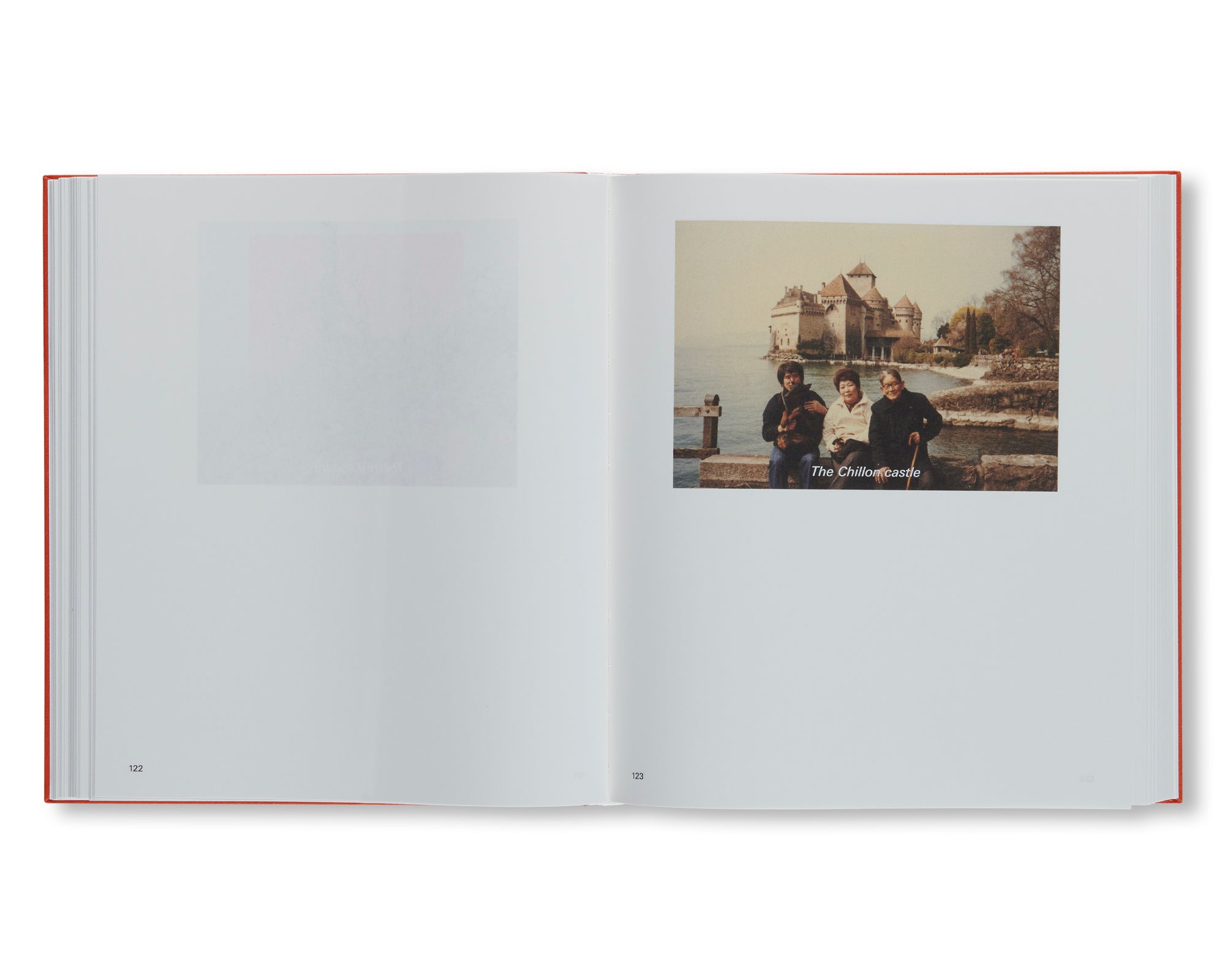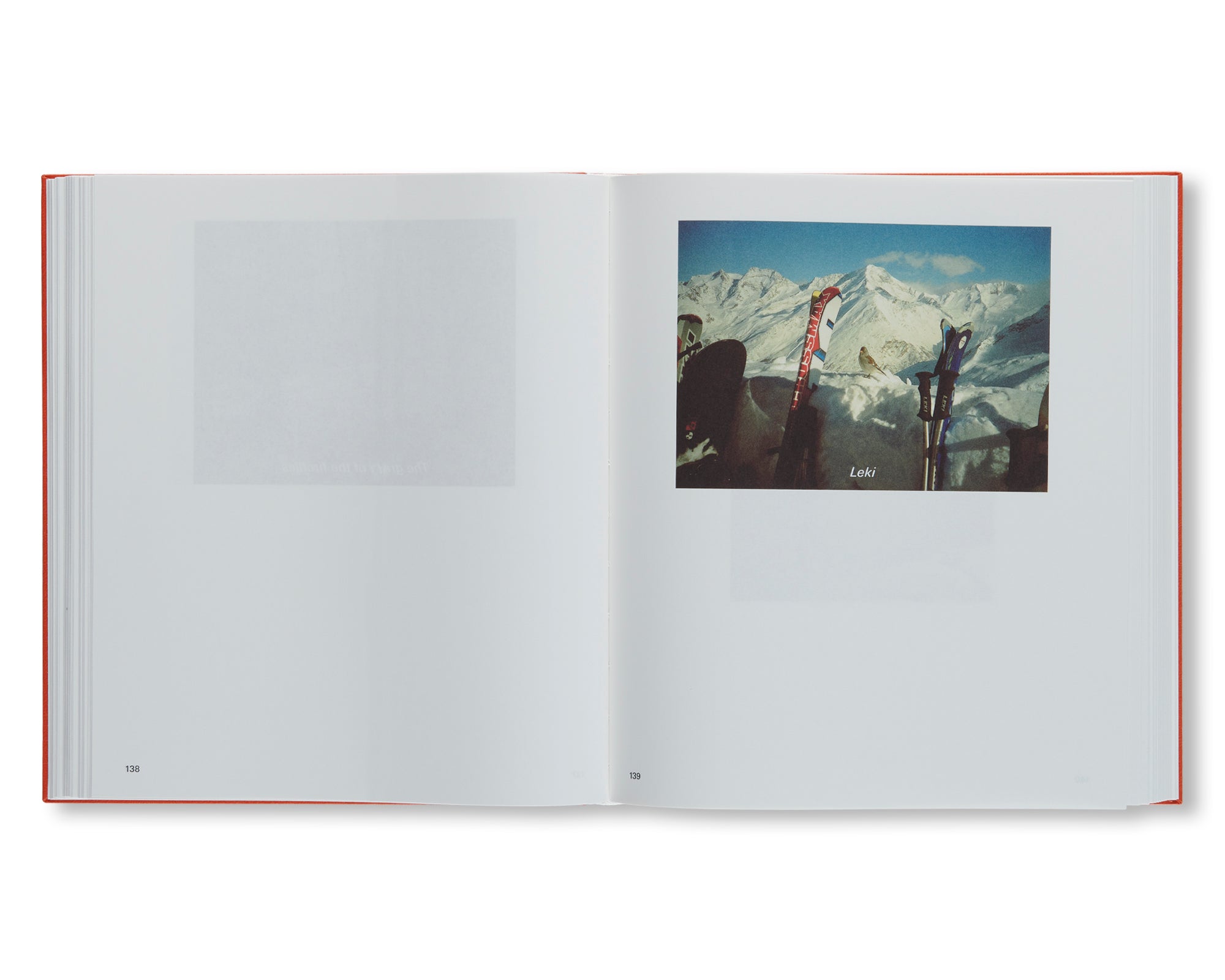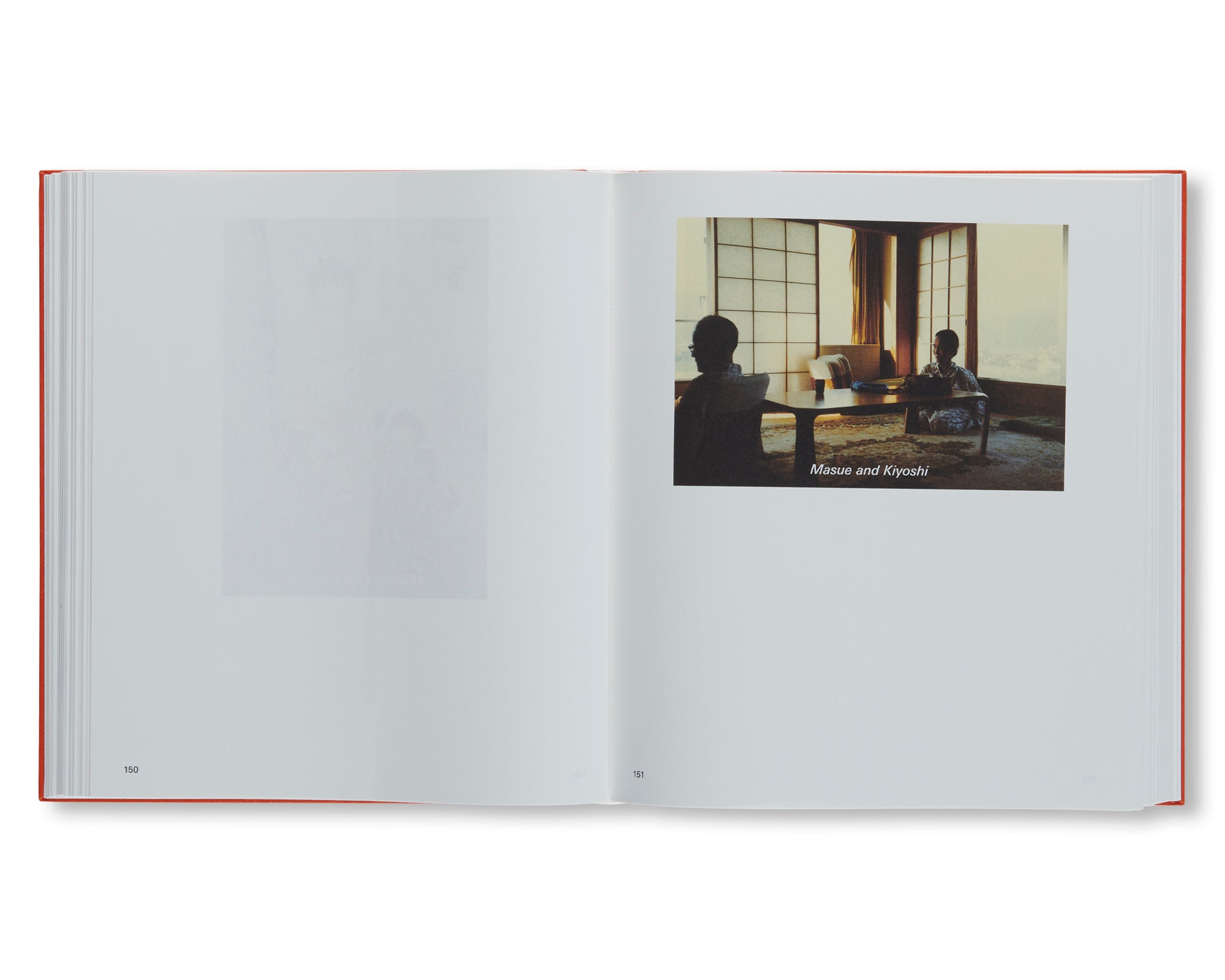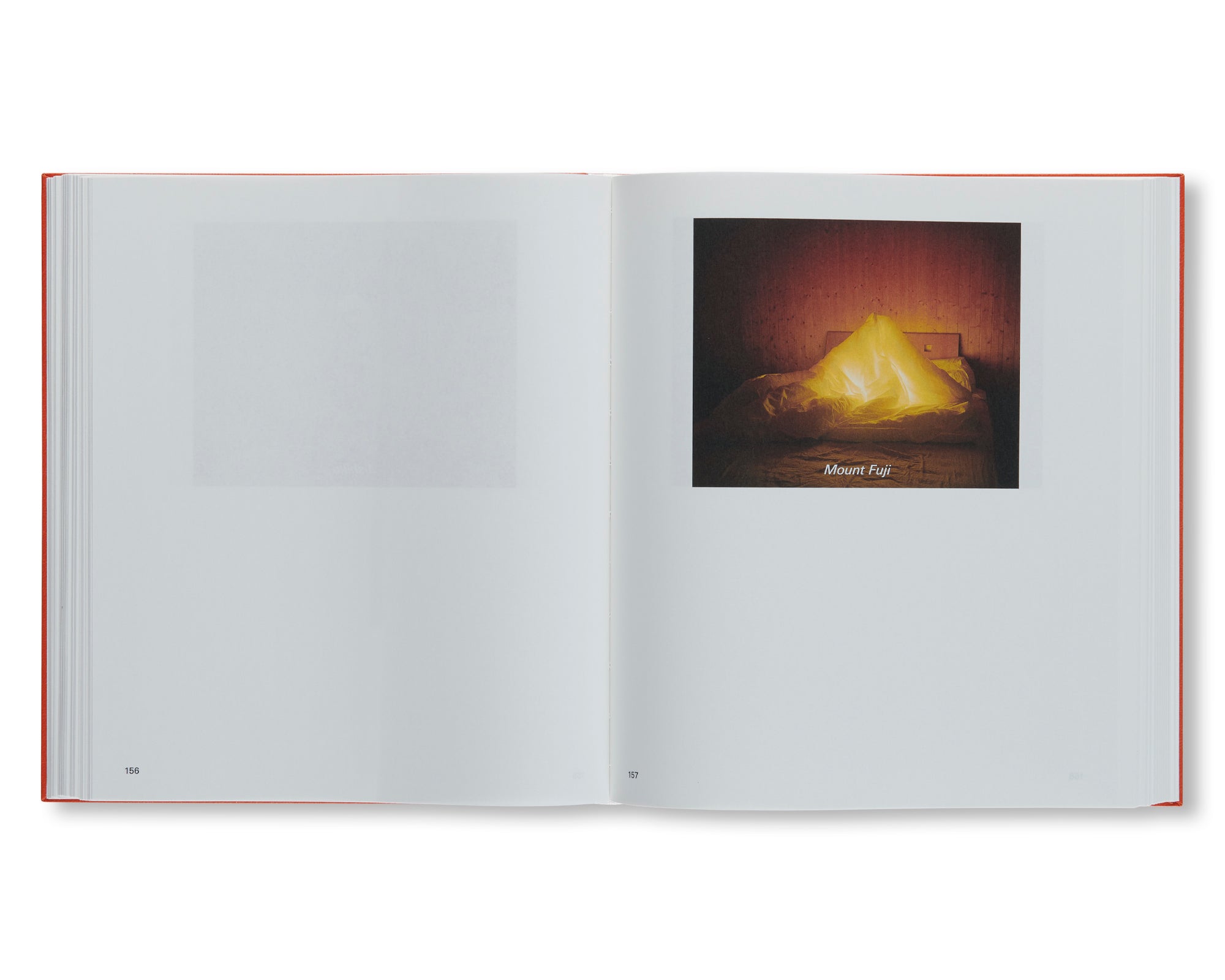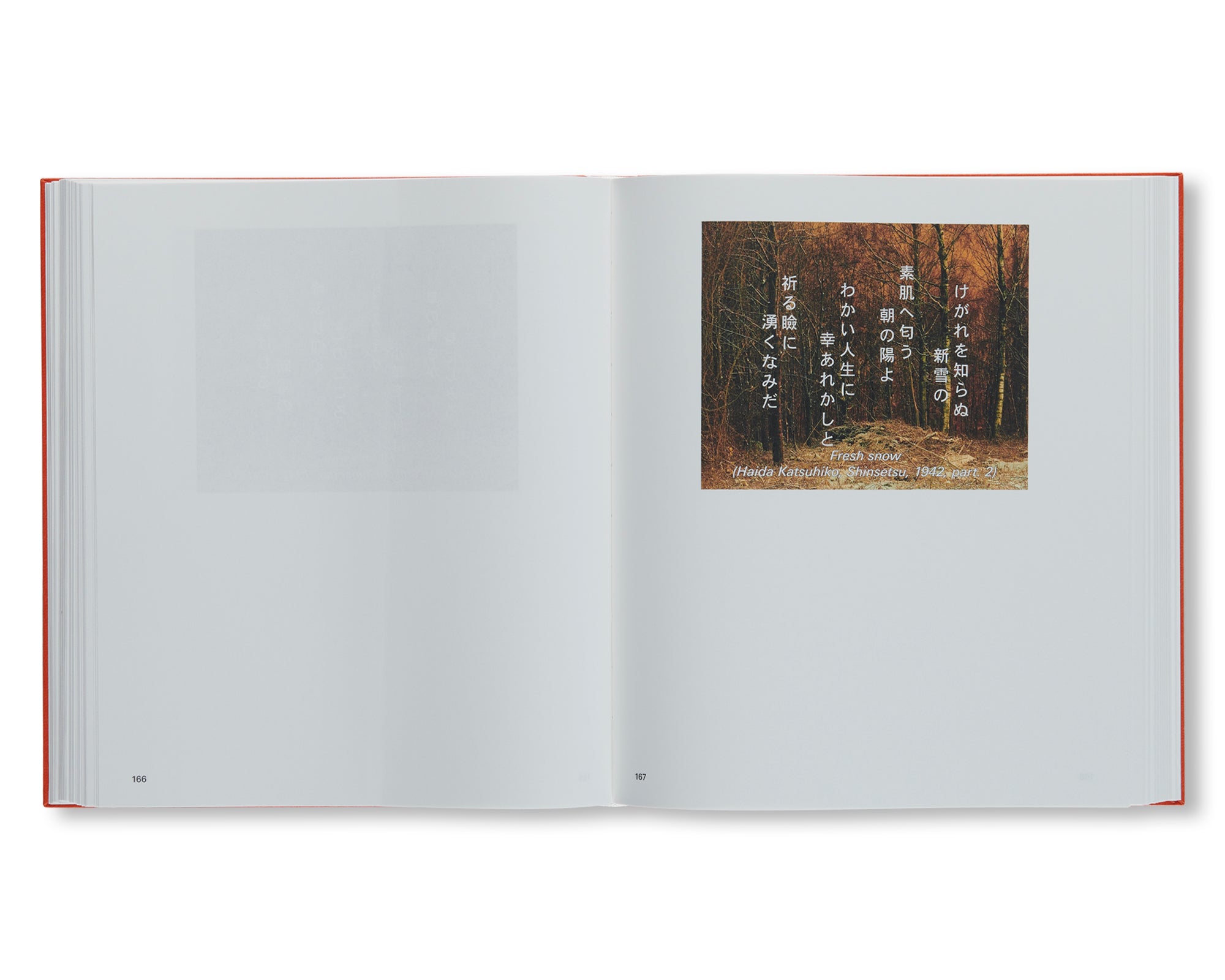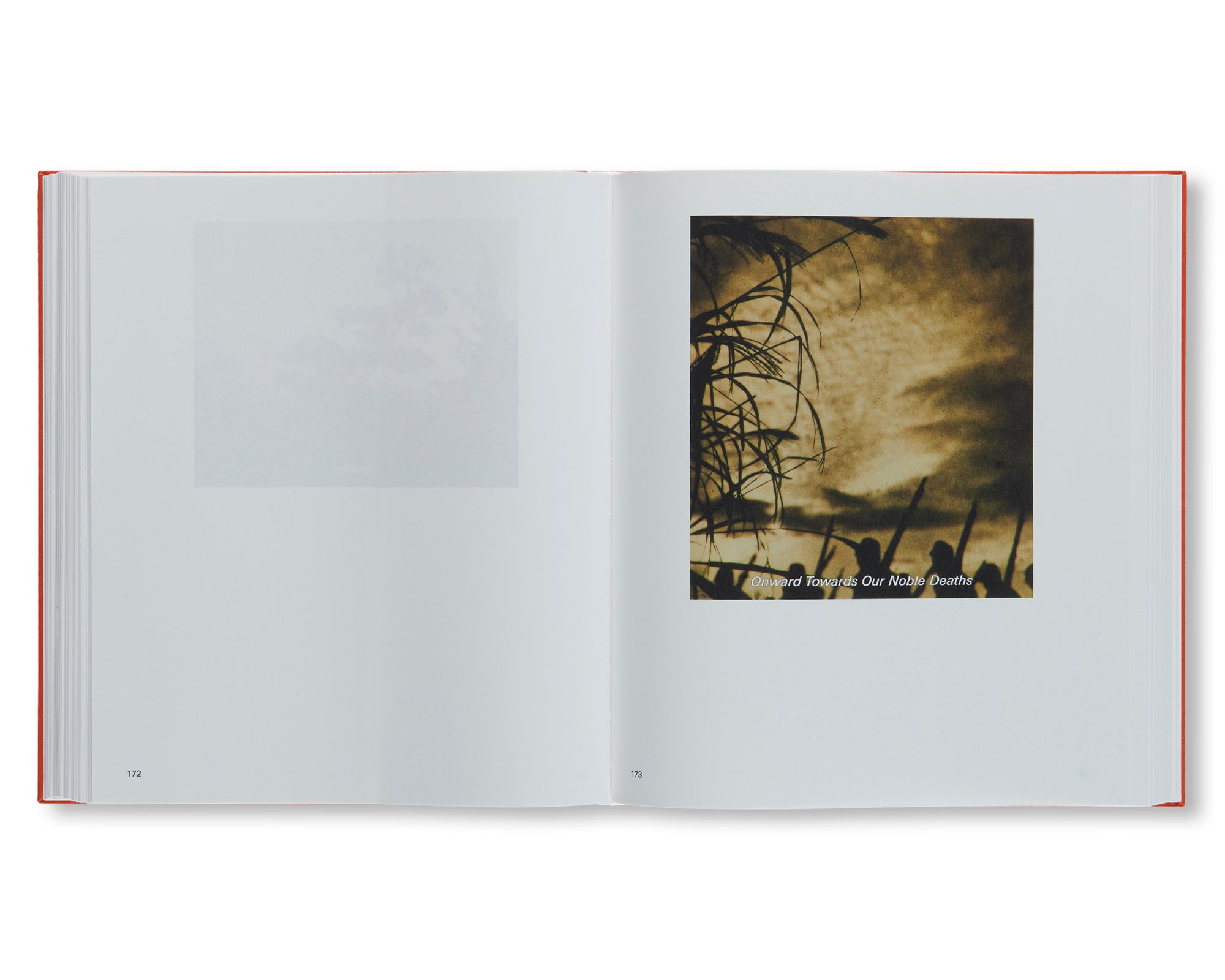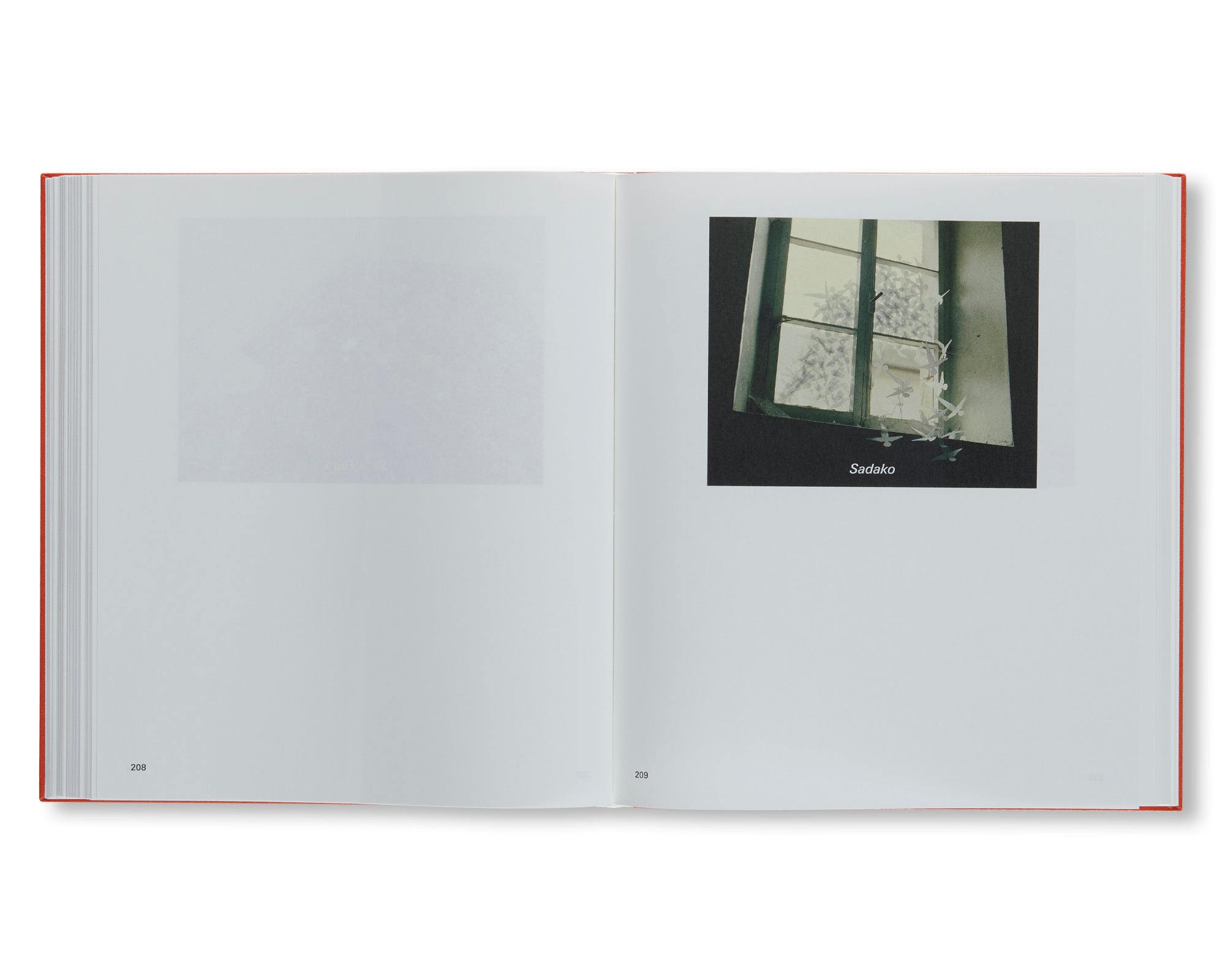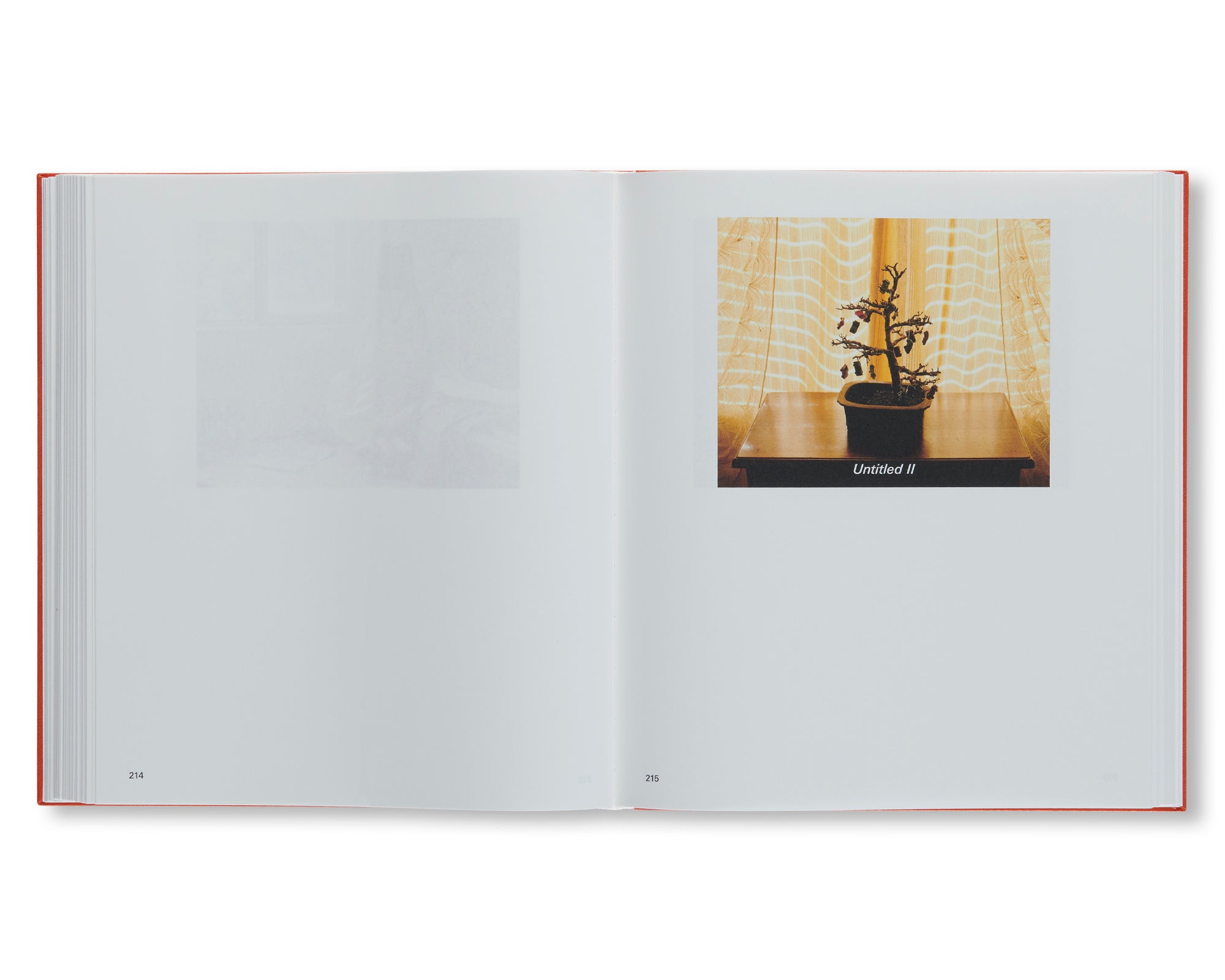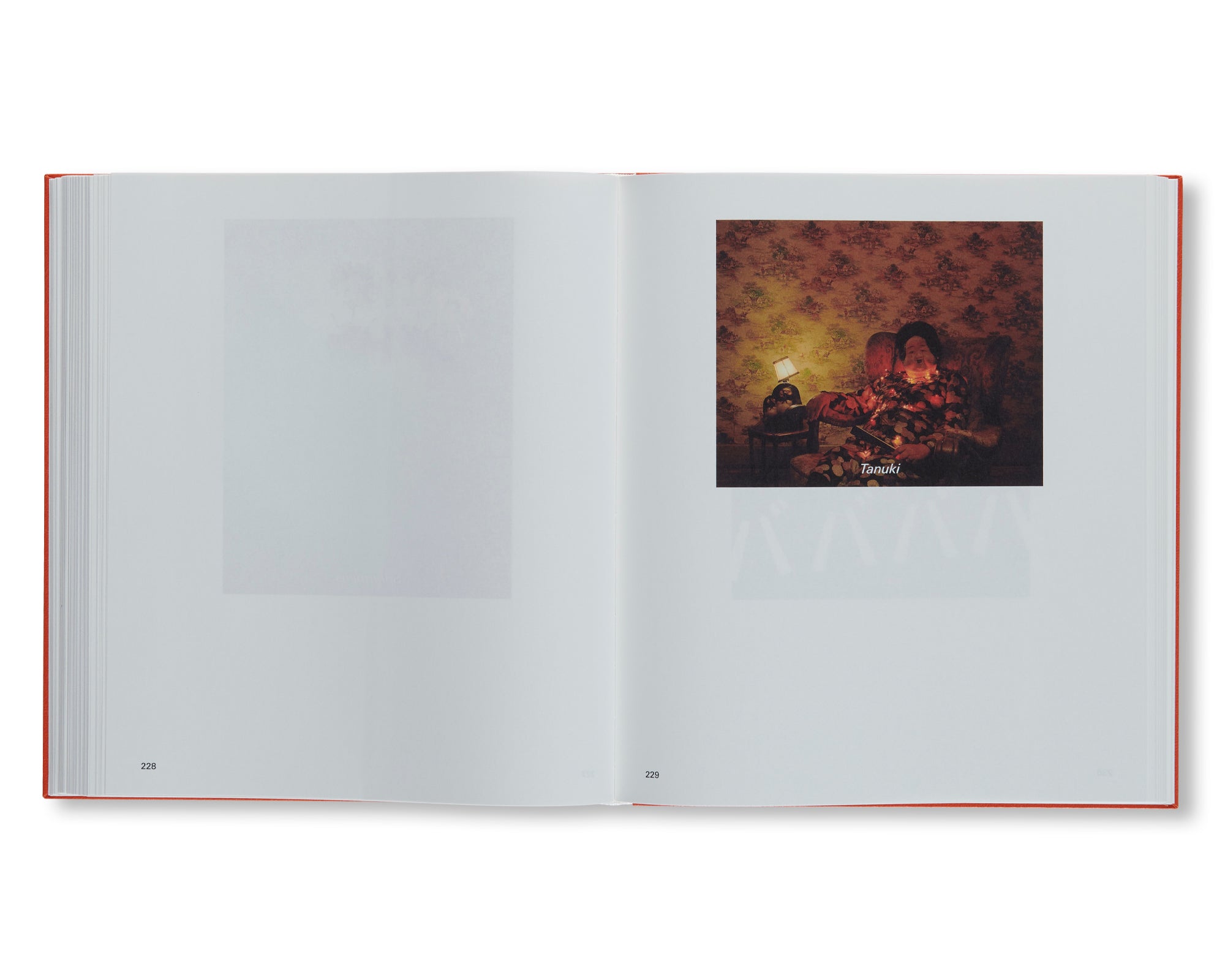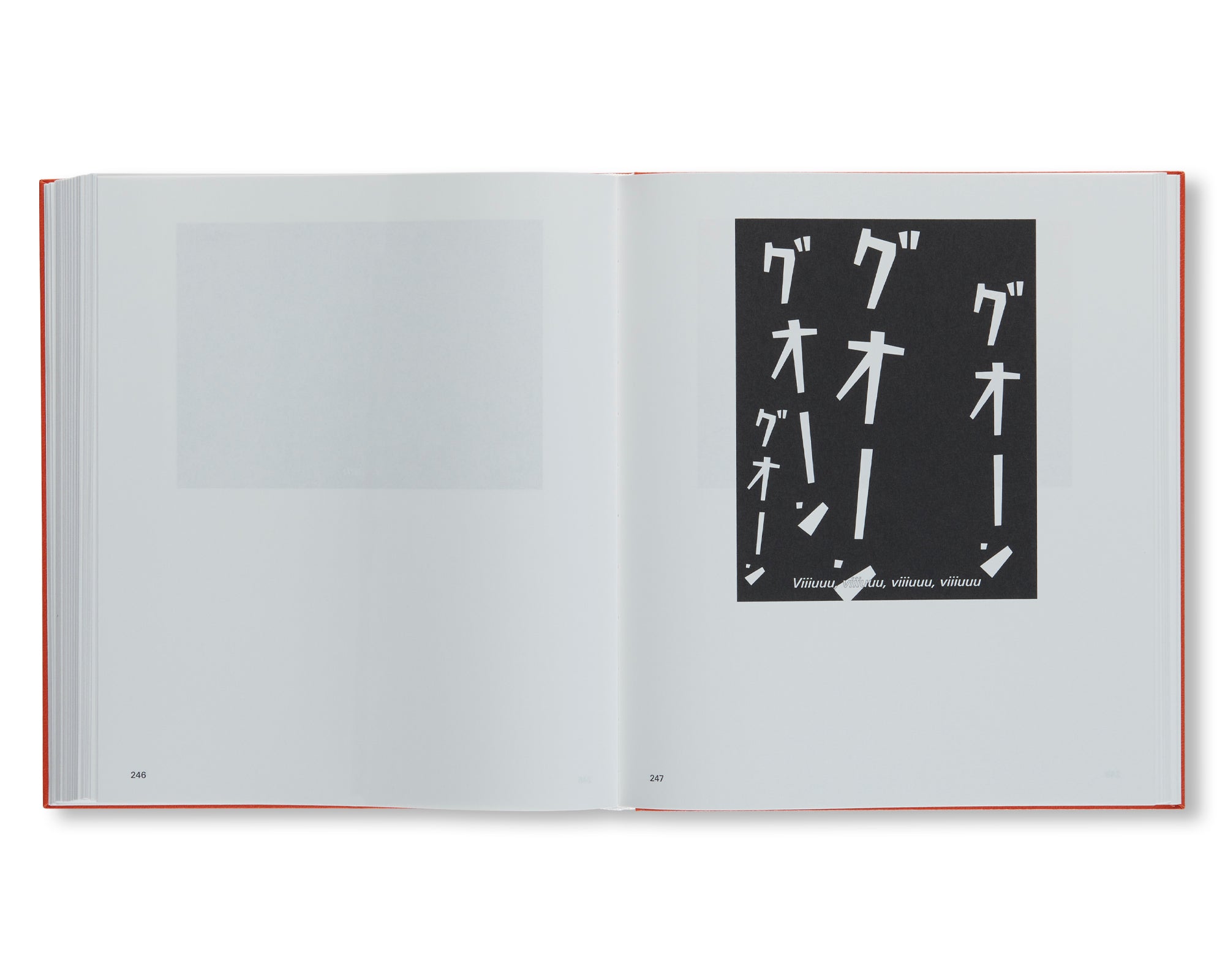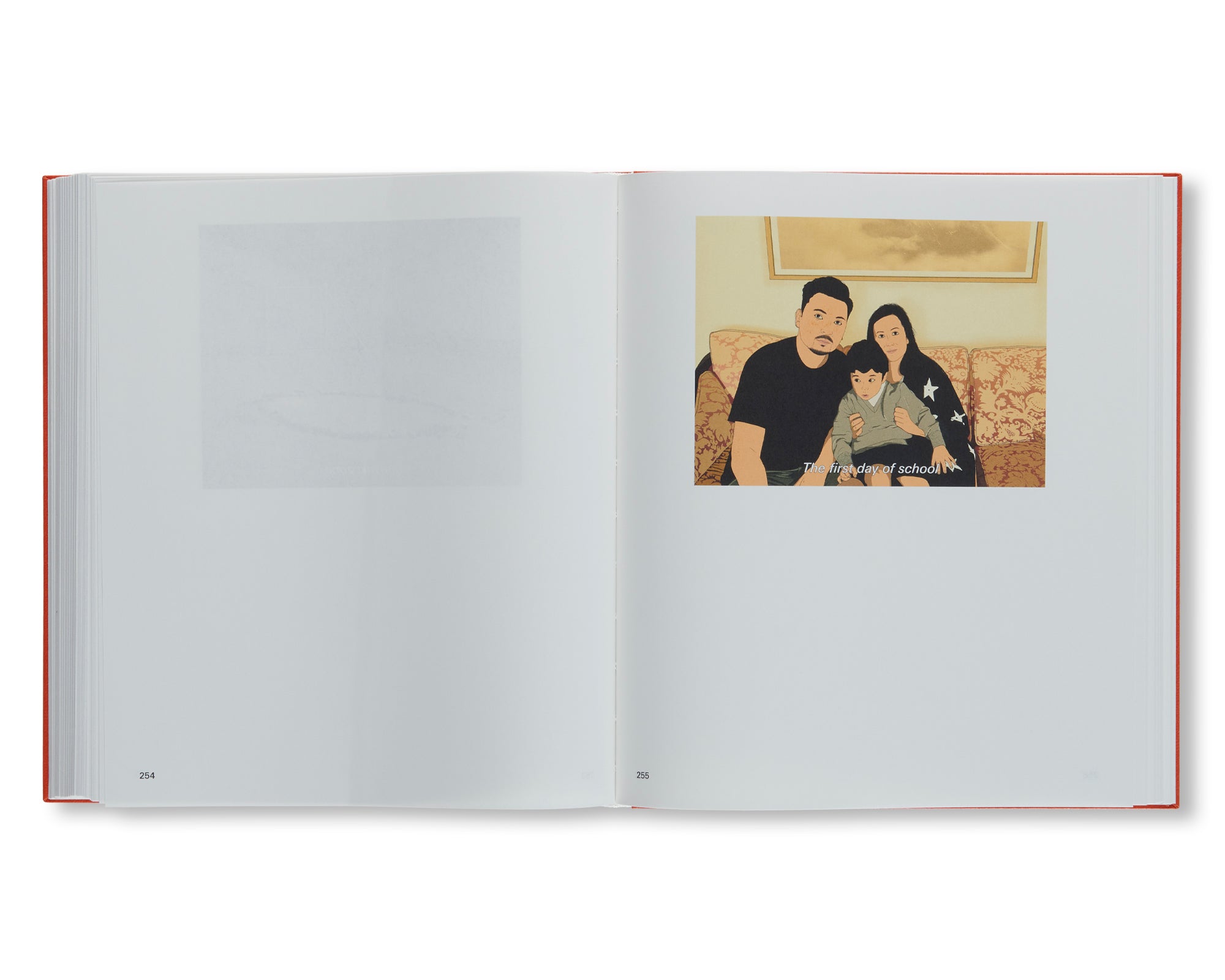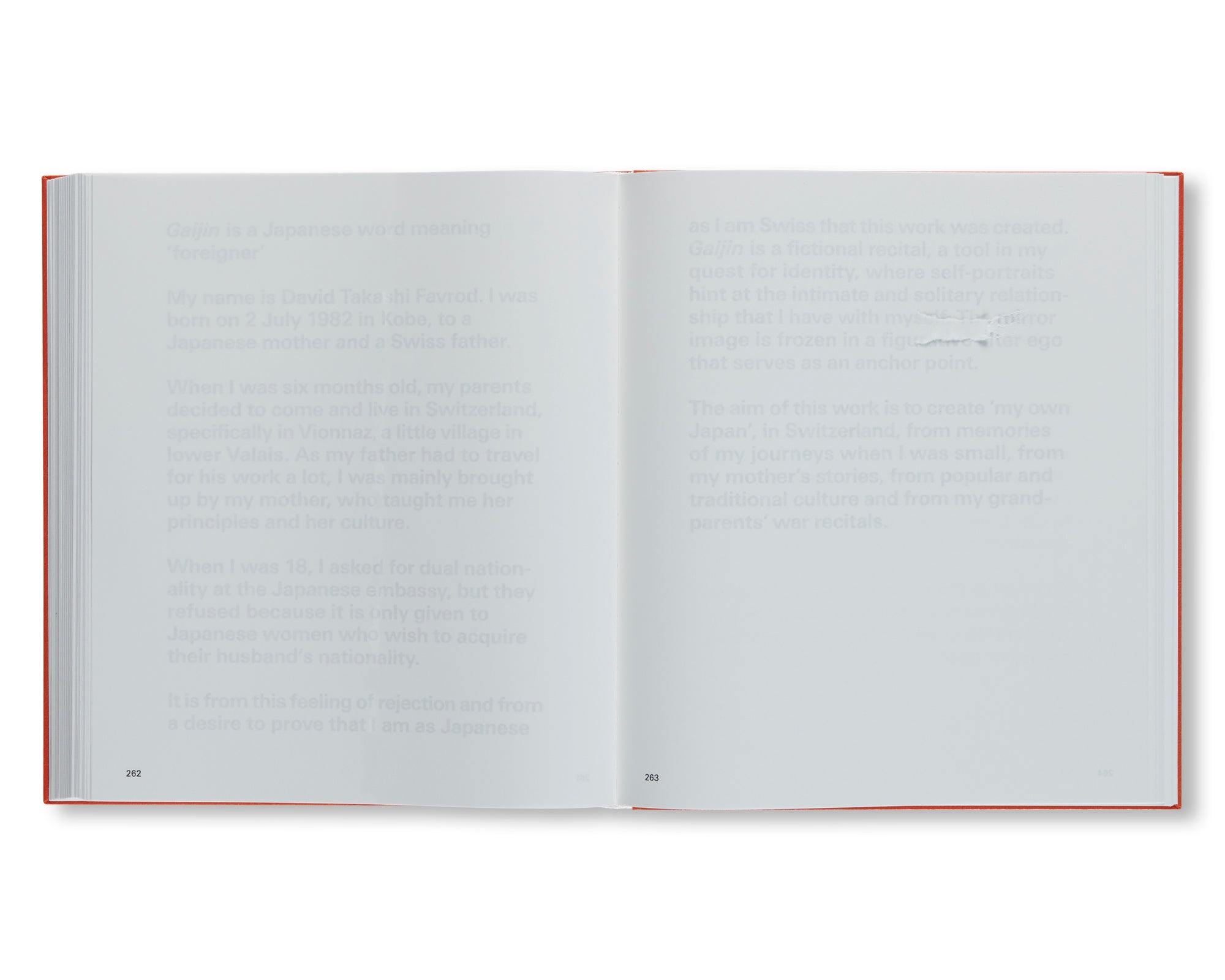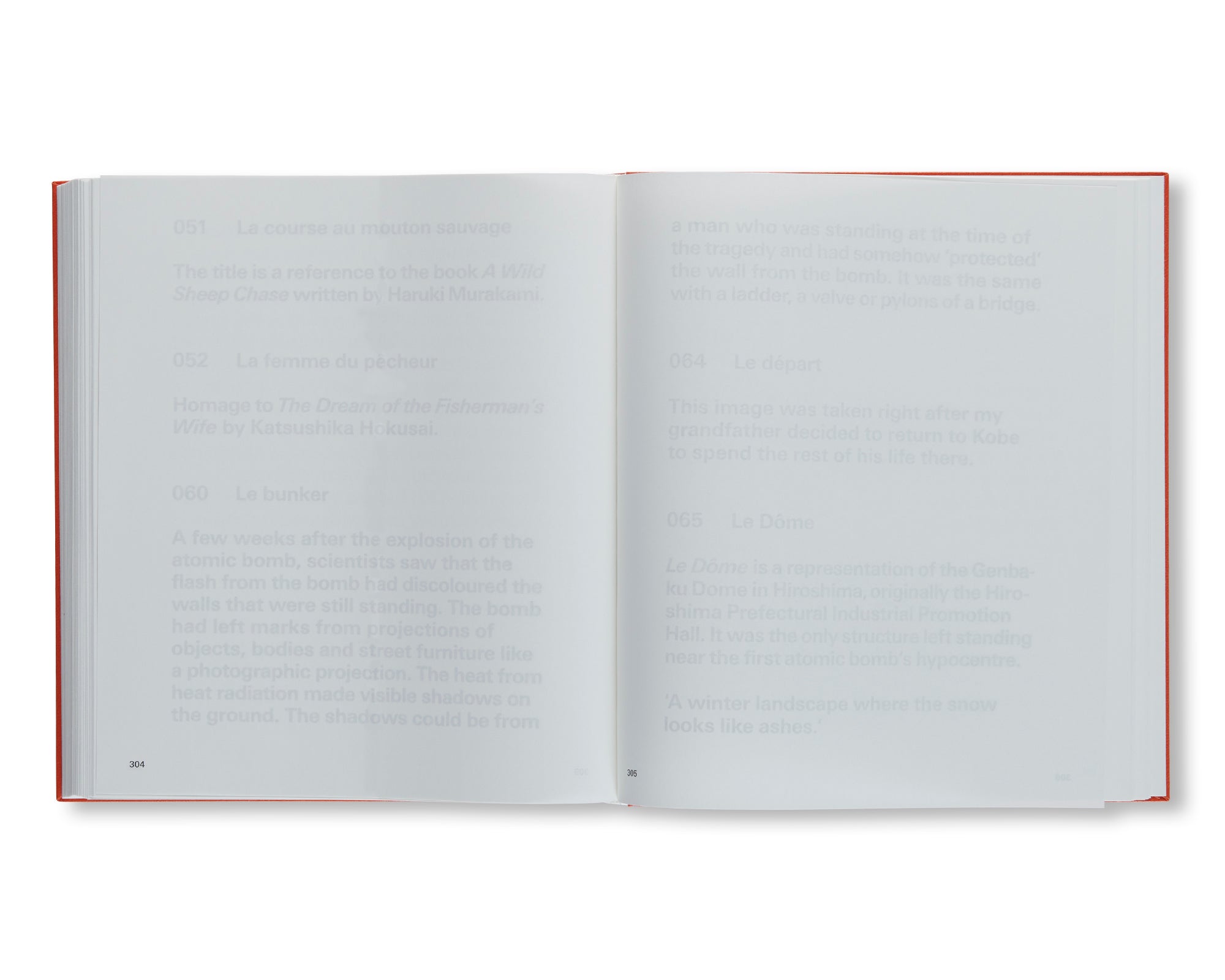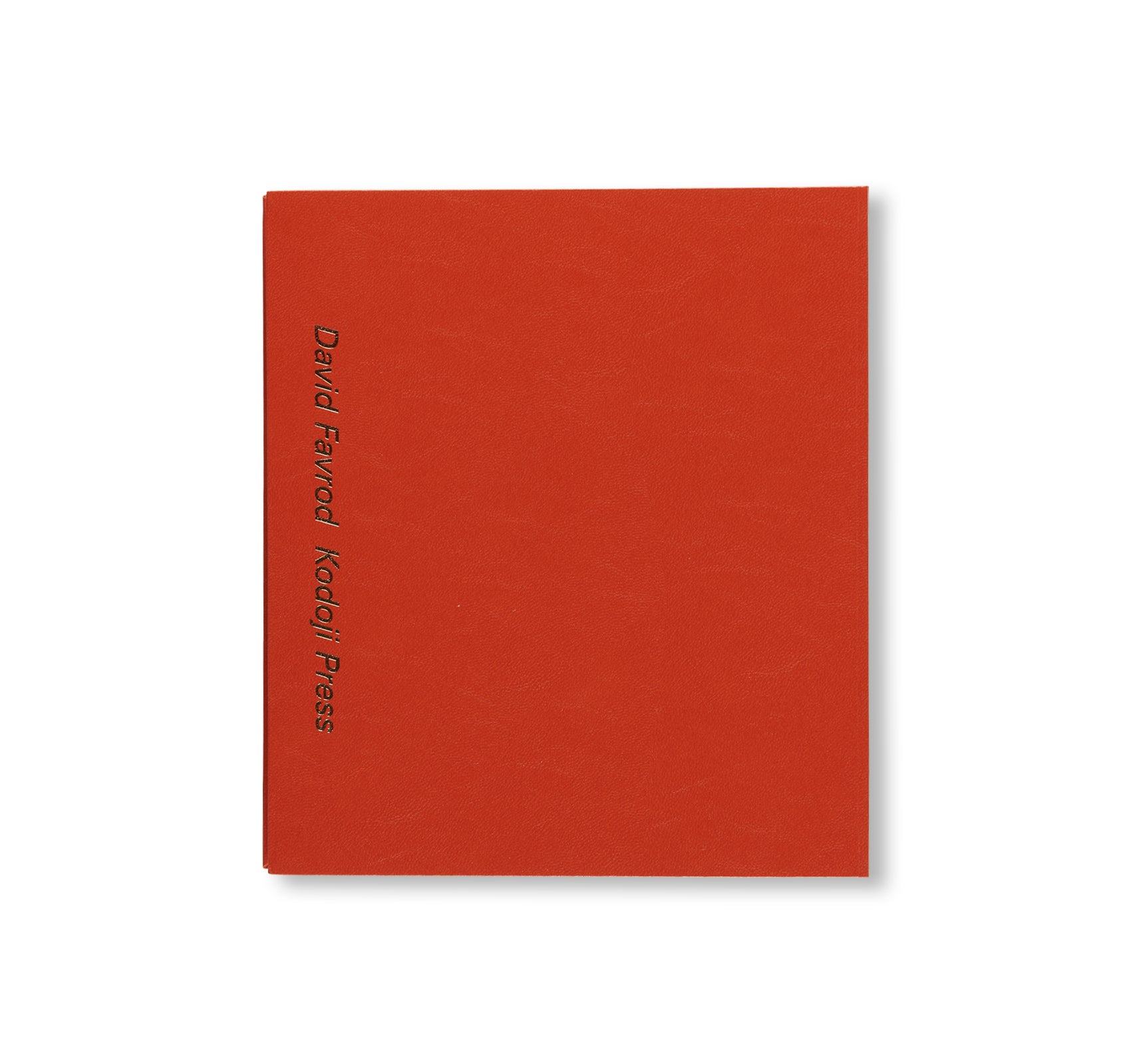GAIJIN OMOIDE POROPORO HIKARI by David Favrod
スペインとスイスを拠点に活動する日本生まれのアーティスト、ダヴィッド・ファブロット(David Favrod)の作品集。本作は、作者が2009年から2012年にかけて制作した3つのシリーズ「Gaijin」、「Omoide Poroporo」、「Hikari」を収録する。作者はスイス人の父親と日本人の母親の間に生まれ、幼少期をスイスで過ごし母親から理念や文化を受け継いだ。18歳になった時、二重国籍を申請したが結果として日本国籍を得られなかった作者は、その瞬間「外人(Gaijin)」となった。本書は作者のアイデンティティの探求を描いたフィクションであり、自身の経験や家族の体験談から得た内容からインスピレーションを得ている。
「ガイジン」とは日本語で外国人を意味する言葉です。
僕の名前はダヴィッド・タカシ・ファブロットです。1982年7月2日、神戸生まれ。日本人の母とのスイス人の父の間に生まれました。
僕が生後6ヶ月のとき、両親は、スイス・ヴァレー州南部にある小さな村で暮らすことを決めました。父は仕事の出張が多かったため、僕はほとんど母に育てられ、彼女の信念と文化を教えてくれました。
18歳の時、二重国籍を取ろうと日本大使館で申請をしたところ、断られました。夫の国籍を取得したい日本人女性に限って許可されているとのことでした。
この「除外」された感覚、そして僕がスイス人であり、日本人であるということを証明したい思いからこの写真集が生まれました。「Gaijin」はフィクションであり、アイデンティティを探るツールです。セルフポートレートは、僕自身との親密かつ孤独な関係を示唆しています。その鏡像は軸となってくれる具象的な分身です。
この写真集は、幼い頃、日本を旅した思い出や母が語ってくれた話、日本の伝統文化や祖父母が語ってくれた戦争の話などを紡いで、スイスで「僕の日本」を作り上げることを目的にしています。
「おもひでぽろぽろ」は「雨のようにこぼれ落ちる思い出」を意味する日本の表現です。
僕は自分のことを話すのが苦手です。いつも『自分は何者なのか?』というパラドックスにつまずいてしまいます。
事実で言えば、僕は自分のことを一番よく知っている人と見えるでしょう。自分について語らないといけなくなると、僕は自分の関心や感性に基づいて、何をどのように言い伝えたいかというフィルターを通してしまいがちです。
そうすると、僕の家族や人生をイメージしたときの客観的な価値は一体何でしょう。
具体的にどこまで現実と関係しているのか、していないのか。
「Hikari」は日本語で「光」を意味する単語です。
この作品は、自ら記憶を構築し、形作ろうとする衝動を表しています。それは、生活の中で無意識に僕に影響を与えたけど、自分自身は経験していない事実を再構成することであります。
僕の祖父母は戦争を目の当たりにしました。生存者であるふたりは、いずれはこの世を去り、その記憶もやがて歴史の一部となることでしょう。
ある晩、一度だけ戦時中の経験について話をしました。病気が兄弟を奪ってしまうこと、恥、終戦の安心、そしてスイカの話をしました。しかし、その夜以来、祖父母は一度もその話をすることはなかったです。まるで祖父母は、記憶が消え去る前に、僕にささやくように分け与えてくれました。
僕はなんとなく彼らの記憶を借りていると言えるでしょう。彼らの物語を僕の証言のインスピレーション源にしています。
Gaijin is a Japanese word meaning ‘foreigner’.
My name is David Takashi Favrod. I was born on 2 July 1982 in Kobe, to a Japanese mother and a Swiss father.
When I was six months old, my parents decided to come and live in Switzerland, specifically in Vionnaz, a little village in lower Valais. As my father had to travel for his work a lot, I was mainly brought up by my mother, who taught me her principles and her culture.
When I was 18, I asked for dual nationality at the Japanese embassy, but they refused because it is only given to Japanese women who wish to acquire their husband’s nationality.
It is from this feeling of rejection and from a desire to prove that I am as Japanese as I am Swiss that this work was created. Gaijin is a fictional recital, a tool in my quest for identity, where self-portraits hint at the intimate and solitary relationship that I have with myself. The mirror image is frozen in a figurative alter ego that serves as an anchor point.
The aim of this work is to create ‘my own Japan’, in Switzerland, from memories of my journeys when I was small, from my mother’s stories, from popular and traditional culture and from my grandparents’ war recitals.
Omoide Poroporo is a Japanese expression meaning ‘memories like falling rain’.
I usually find it hard to talk about myself. I always stumble into the paradoxes of ‘who am l?’.
In terms of factual information, I surely appear to be the most well-informed person about myself. But as soon as I need to talk about who I am, I tend to do it through filters, selecting what I want to communicate and how I wish to do it, based on my interests and sensitivities.
So what is the objective value of the way that I picture my family and my life?
How much does it concretely relate to reality or not?
Hikari is a Japanese word meaning ‘light’.
This work represents my compulsion to build and shape my own memory. To reconstitute some facts l haven’t experienced myself, but which have unconsciously influenced me while growing up.
My grandparents witnessed the war; survivors who ultimately passed away and whose memories will soon be a part of history.
Only once did we speak about their experiences during the war. They told me how illness can take away your sisters, about the shame, the relief after the war, and the watermelons. But after that night we never talked about it again. It was as if my grandparents gave me their memories as a whisper through the air before allowing them to disappear from their minds.
I would say that I have somehow borrowed their memories. I use their stories as a source of inspiration for my own testimony.
